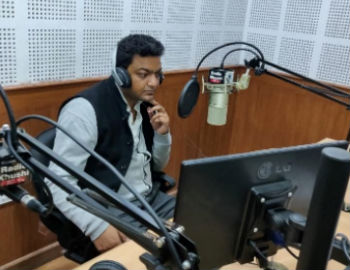
Dr. Vishal Singh discussed about Urbanisation and Climate Change.


CEDAR Knowledge Exchange Initiative
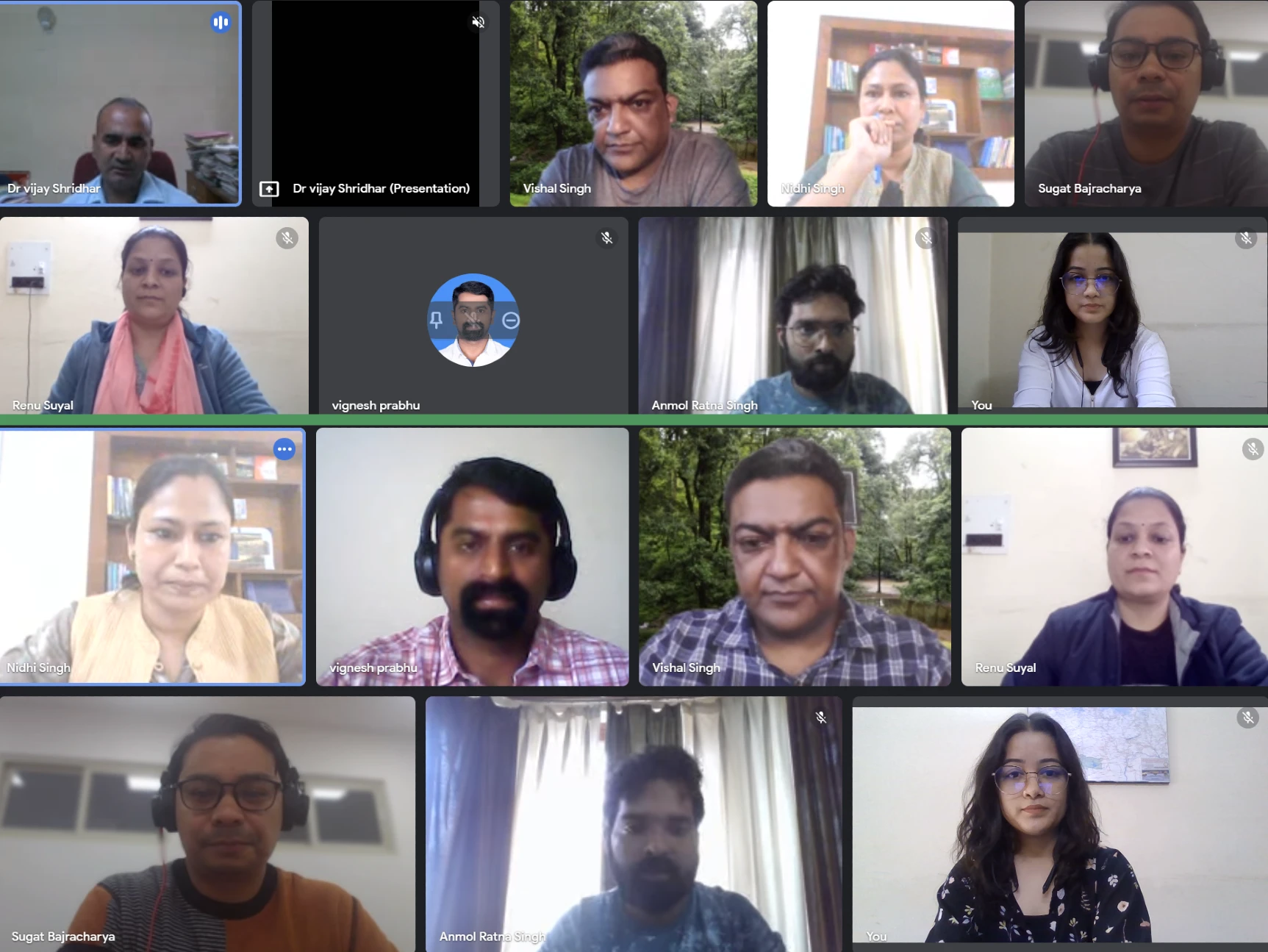
Stakeholder consultations for Integrated Management Planning of Pong Ramsar Site in Himachal Pradesh

Digital data collection and analysis using KoBoToolbox
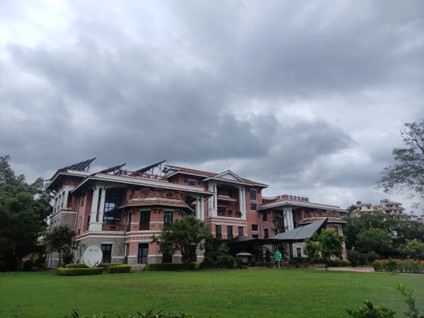
Stakeholder meetings for Integrated Management Planning of Pong Ramsar Site in Himachal Pradesh

Big Bird Day in Mukteshwar – A Nature Trail

A Visit To Renuka Lake To Assess The Current Institutional And Cultural Arrangements For The Management Of Various Aspects Of The Wetland
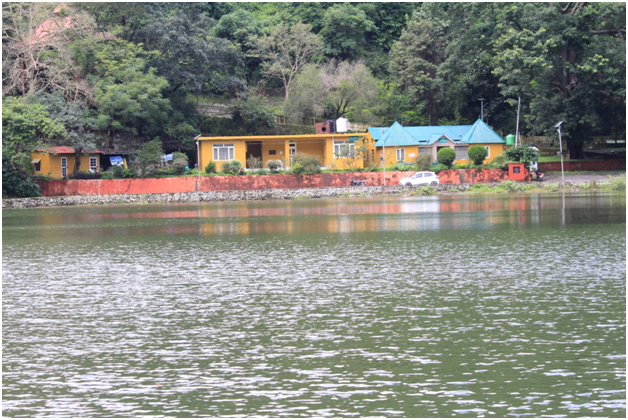
60 Day Nature Observation Challenge Under the “Nature Linked Ecotourism Promotion” in Mukhteshwar Landscape
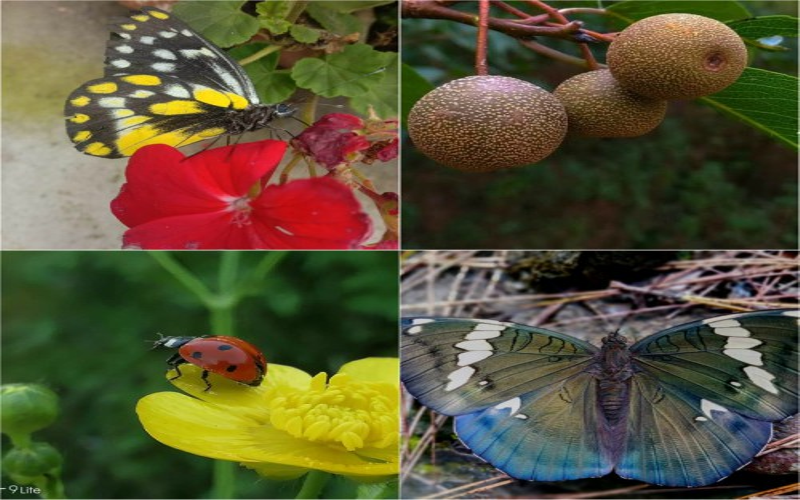
Field Activity Performed in Kangra District of Himachal Pradesh
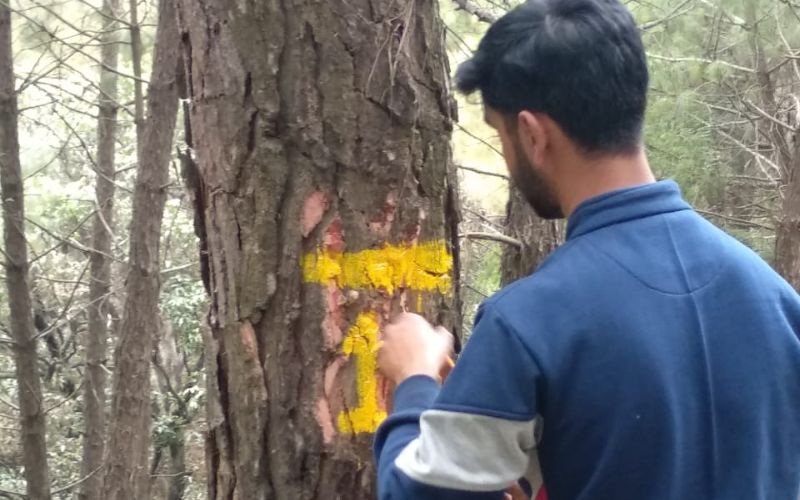
Stakeholder Meeting on Ecosystem Services and Livelihoods in Renuka Wetland
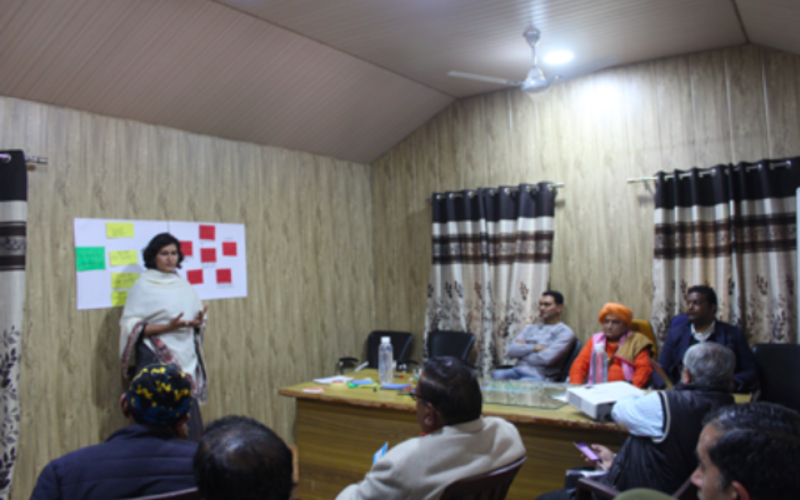
CEDAR Researcher Explaining About The Field Techniques For Biodiversity Estimation With Respect to Mychorrhizal Sporocarp Density
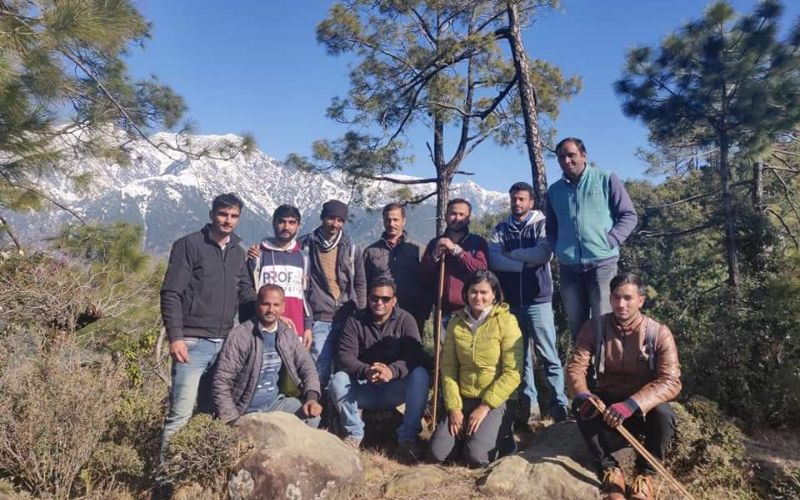
Training Program on Forest Carbon Measurement
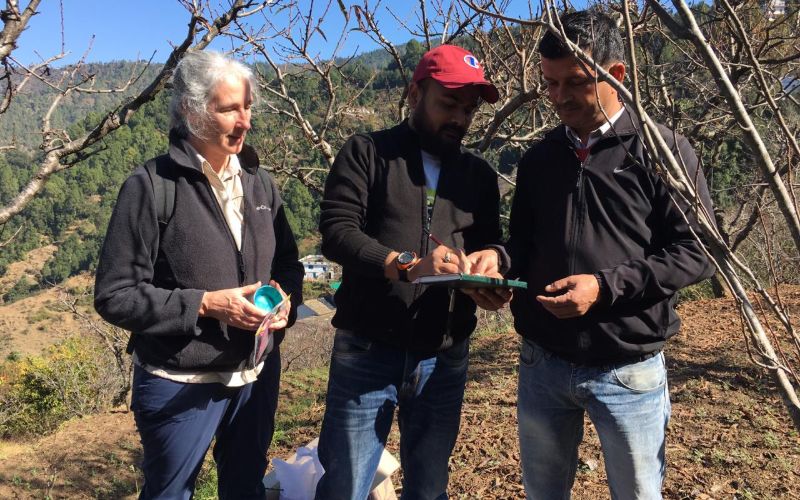
Training program for estimating Bee population in Apple orchards
First Residential Training Camp for Nature-Linked Ecotourism Promotion in Mukhteshwar Landscape

Institute for Study and Development Worldwide (hereafter referred to as “IFSD”) and Centre for Ecology Development and Research (hereafter referred to as “CEDAR”), have entered into this Memorandum of Understanding (MOU) in consideration of their complementary capacities and shared visions on sustainable development and natural resources management. This MoU reflects discussions held between the agents' representatives of the parties and formalizes a basis for cooperation, pursuant to the prevailing laws and regulations in Australia and countries of business operation.

The partnership is aiming at quality research work on areas such as forests, wildlife, watersheds, etc. The collaboration will provide access to and linkages with researchers and varied research programs of mutual interest. This alliance will enable explorations of networks for understanding Himalayan systems, creating a scientific body of knowledge, and capacity building of the students and upcoming researchers.
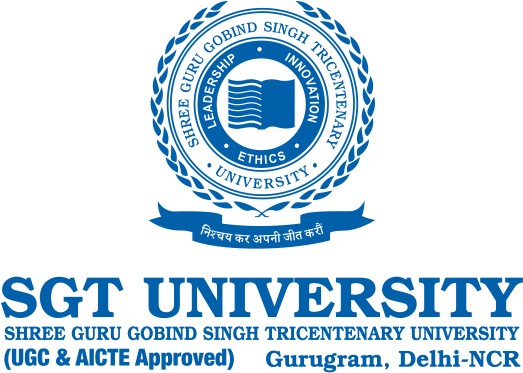
In an interesting collaboration with Radio Khushi 90.4, CEDAR reached out to the citizens of Mussoorie to understand their perspectives on issues related to urbanization, water, forests, migration, and livelihood in the hills. Our researchers went on-air every Thursday of September-November 2018 and shared their experiences of working in the hill town illustrating the

Dr. Vishal Singh discussed about Urbanisation and Climate Change.
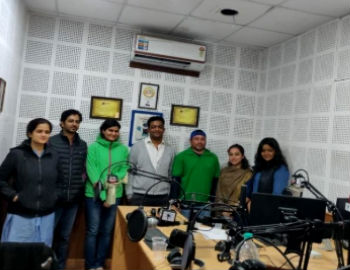
Ms. Anvita Pandey discussed on issues related to Forests and Water.
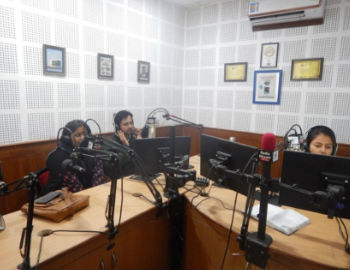
Mr. Riyan Habeeb & Ms. Manya discussed about migration and water scarcity.
their experiences of working in the hill town illustrating the possibilities of citizen engagement in tackling impacts of climate change. The threads of discussions were picked from the on-going project titled, 'Climate Adaptive Water Management Practices (CAMPs) funded by International Development Research Centre, Canada. The partnership served as a platform to directly reach different communities, age groups, and regions to take science to the people for a self-sustained and engaged community.
CEDAR facilitated a study trip for undergraduate students of the National University of Singapore to the rural hinterlands of Mukteshwar and the urbane hill-town of Nainital over an eleven-day period. The students were exposed to the diversity of socio-cultural-economic environments in rapidly-evolving regions of the Kumaun Himalaya.
In the lake-town of Nainital, students strolled the streets looking at the geography of the town, the eye-catching tourist attractions, up-surge of the hospitality sector and
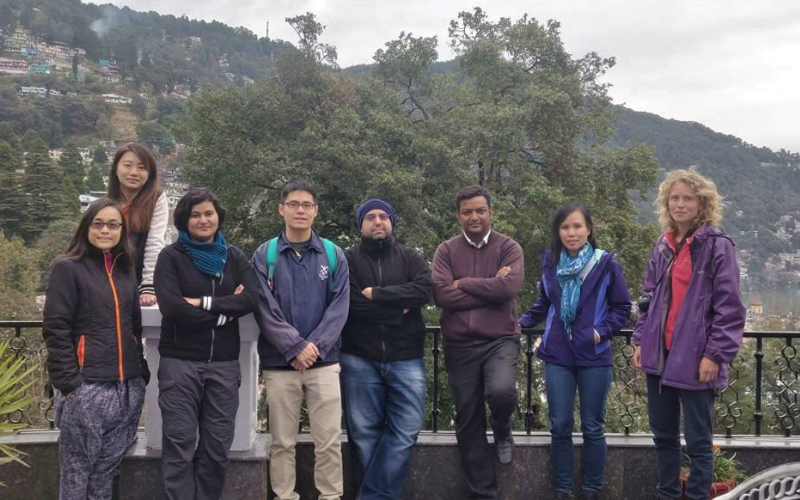
socio-economic activities in operation. The students were acquainted with the current state of affairs and looming shadows of unplanned urbanization and inadequate water infrastructure that are jeopardizing the center of life in the town, i.e., the Naini Lake.
In Mukteshwar, the students were accompanied by Mr. Ramshankar (nature guide and birder) and Ms. Yashi (forest ecologist). They traversed the landscape of Himalayas through forest and village trails and were introduced to the forest ecology, livelihood dependence, and critical roles of communities in forest and water conservation in the hills. Students met with grassroots organizations to understand various livelihood alternatives functioning in the hills. They also got a hands-on experience of making a vermicompost unit at Chirping Orchard, Mukteshwar.
VSO supported IBM's Corporate Service Corps (CSC) programme, which sends 500 employees a year on assignments to address health, education, social and economic development challenges. CEDAR was an active member of the program which hosted three exceptional IBM employees; Sonia Agrawal (from Canada), Gracie Garcia (from Mexico) and Balázs Bérces (from Hungary) for a period of four weeks. The program aimed at cross-cultural exchanges, teamwork and management, and helping in accelerating employee growth. CEDAR was benefited from the expertise of the IBM team in developing a search-engine handled prototype of an application for creating a repository of springs in the Himalaya.


CEDAR Team carried out the study under the project "Feasibility Assessment of Biogas in the Himalayas" , funded by Sustain Plus.The team surveyed five districts of Uttarakhand (Nainital, Pithoragarh, Almora, Rudraprayag, Uttarkashi) to understand and document theexperiences of biogas users for developing future scale-up strategies.
Rainwater Harvesting System (RWH) was implemented at Municipal Postgraduate College, Mussoorie under the CAMPS project funded by IDRC, Canada. The main objective of the RWH structure was to store rainwater from the roof of the college which can be further used during the lean season. The total storage capacity of the RWH system is 6000 litres.
This video is based on Urban Water Insecurity in Mussoorie. Explaining how rapid increase in Population and Urbanization in the city is effecting its climatic conditions which leads to the depletion of existing water sources in the city and how its effecting the life of localities.
It is important to make science affordable. Recently, CEDAR has successfully installed Bio-Sand Filter in Haldwani at ward no. 22, of Municipal Corporation. This simple looking object is easy to install and operate. This was designed as a low cost water purifier for people who lack access to clean drinking water.
This video is based on the water challenges of Haldwani City, Uttrakhand. Video focuses on that How existing water sources in the city are depleting, How due to urbanization and rise in population leads to climate change and increase pressure on ground water. How residents are facing problems of water scarcity in summers, What are reasons and possible solutions to over come this situation.